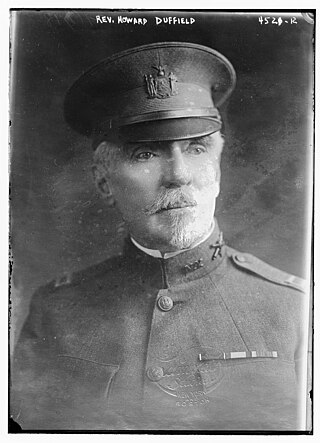Joseph or Joe Smith may refer to:
John Walker may refer to:
Jack, Johnny, or John Ball may refer to:
Thomas Hardy (1840–1928) was an English novelist, short-story writer and poet.
George Young may refer to:
John Armstrong was an American civil engineer and soldier who served as a brigadier general in the Continental Army and as a major general in the Pennsylvania Militia during the Revolutionary War. He was also a delegate to the Continental Congress for Pennsylvania. Armstrong County, Pennsylvania is named in his honor.
John Horsley FRS was a British antiquarian, known primarily for his book Britannia Romana or The Roman Antiquities of Britain which was published in 1732.
James Bruce (1730–1794) was a Scottish traveller and travel writer.

Amos Slaymaker was a member of the U.S. House of Representatives from Pennsylvania. His younger sister, Faithful, was the mother of the nineteenth-century Presbyterian minister George Duffield.
Grierson is a surname of Scottish origin. The name is possibly a patronymic form of the personal name Grier or Grere, which may have reflected the Scots pronunciation of Gregor. The earliest known spellings are Grersoun and Greresoun. It was common practice in SW Scotland, particularly in the 16th and 17th centuries, for the name to be abbreviated to Grier, and there are many instances of the two forms being used in reference to the same man in the same document. This usage was further modified to Greer by a cadet branch of the Lag family who migrated to Ireland.
Hugh Wilson may refer to:

George Duffield was a leading nineteenth-century New School Presbyterian minister who bore the same name as his father and grandfather. His evolution from unconventional doctrinal leanings to more orthodox and standard ones typified the moderation on both sides which led to reunion with the Old School Presbyterians in 1870.
George Duffield Jr. D.D. was an American Presbyterian minister and hymnodist.
Riddell as a surname may refer to:
"Stand Up, Stand Up for Jesus" is an American Christian hymn. It was written by George Duffield Jr. in 1858 and is based on the dying words of Dudley Atkins Tyng. The traditional tune "Webb" was composed by George James Webb, and the lesser-used tune "Geibel" was composed by Adam Geibel.

George Duffield was a leading eighteenth-century Presbyterian minister. He was born in Lancaster County, Province of Pennsylvania in 1732. In 1779, Duffield was elected a member of the American Philosophical Society.

Samuel Willoughby Duffield was an American clergyman and author.
Grimm is a surname. Notable people with the surname include:

Rev. John Seccombe was an author, a founder of Chester, Nova Scotia and was “the best-known and most highly respected clergyman in Nova Scotia.” He was also the author of Father Abbey's Will, which was printed as a poem and a broadsheet over 30 times throughout the 18th century in England and America. According to the Manual of American Literature, the poem "was one of the best comic poems of that day." As a result of the poem, the History of American Literature indicated that Seccombe "had an extraordinary notoriety" in America's early literary history.

George Howard Duffield was a prominent American minister in New York City.
This page is based on this
Wikipedia article Text is available under the
CC BY-SA 4.0 license; additional terms may apply.
Images, videos and audio are available under their respective licenses.





